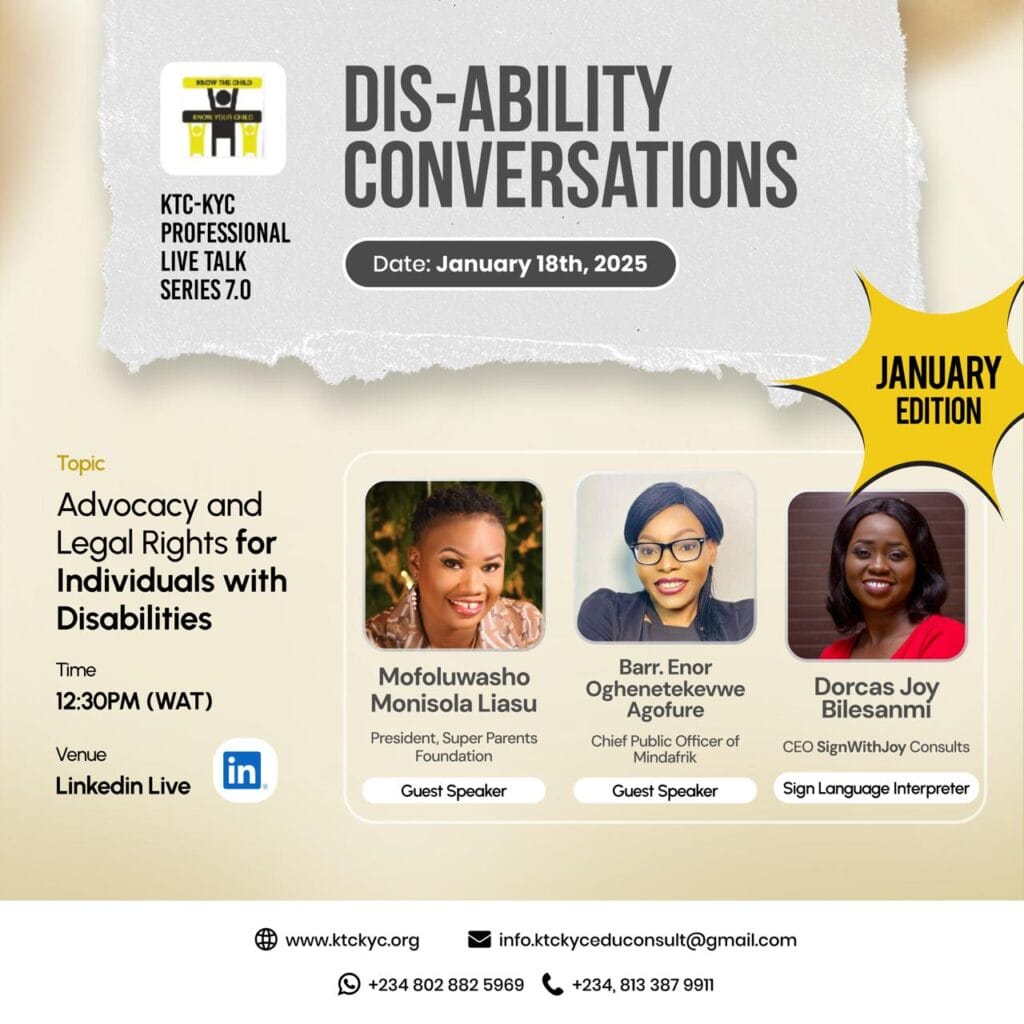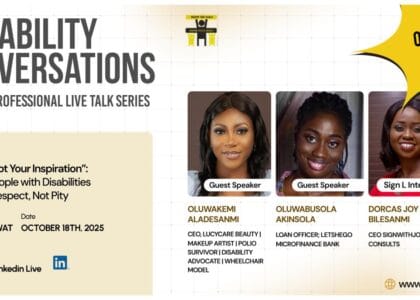We kicked off 2025 with an inspiring session of Dis-Ability Conversations, and what a way to begin the year! On Saturday, January 18th, 2025, we hosted the 6th edition of this impactful series, focused on “Legal Advocacy and Legal Rights for Individuals with Disabilities.”
Our guest speakers, Ms. Enor Oghenetekevwe Agbofure and Ms. Folusho Liasu, brought their unique perspectives and deep expertise, making it a session to remember.

The Journey of Advocacy
For Ms. Enor, her journey as a legal practitioner for persons with disabilities is a passion, not just a profession. According to her, the passing into Law the 2018 Disability Act gave her a strong legal foundation for advocacy against many discriminatory practices, especially from social and corporate institutions.
Her work started with litigation, holding banks accountable for inaccessible buildings and engaging LASODA to ensure compliance with accessibility standards.
Our co-guest speaker, Ms. Folusho’s journey began on social media when a mother sought help for her child’s hearing disability. Moved by the insensitivity of the comments the mother received, Ms. Folusho stepped in to assist. That single act of compassion inspired the creation of the Super Parents Community, which supports parents of children with disabilities by connecting them to the resources and information they need.
How Effective Is the Act/ Law For Persons With Disabilities?
Both speakers highlighted that the 2018 Disability Act provides a solid framework, but implementation remains a major hurdle. While it creates a standing for legal action, enforcement is inconsistent, and the content of the law needs refinement to address more nuanced challenges.
As Ms. Enor pointed out, the law is only as effective as the systems and individuals enforcing it. Advocacy must push for stronger government accountability, proper monitoring by bodies like Lagos State Office for Disability Affairs (LASODA), and practical inclusion in public and private sectors.
The Way Forward? “A Collective Responsibility”
The session ended with a clear message: “Inclusion is everyone’s responsibility”.
Here’s what needs to happen next: “Continuous Advocacy”.
Individuals with disabilities must speak up for themselves, supported by families, caregivers, NGOs, and allies.
- Wider Awareness: Education about disability rights must reach every level of society, from grassroots to government.
- Empowering Caregivers: Providing resources and training for parents and caregivers is essential to raising confident and capable individuals.
- Sustained Effort: Advocacy isn’t a one-time action; it must continue until inclusivity is deeply embedded in our systems.
As Ms. Folusho emphasized, “Advocacy must go beyond words. It’s about creating empowered individuals and systems that support them. We must not stop until inclusion becomes second nature.”
Final Thoughts
This session was a reminder that progress is possible, but it requires action from everyone – advocates, policymakers, caregivers, and individuals with disabilities themselves. Together, we can create a society where everyone has equal opportunities, regardless of ability.
If you missed this powerful conversation, don’t worry! Click the replay link and be part of the movement for lasting change.
Warm regards,
KTC-KYC team.

